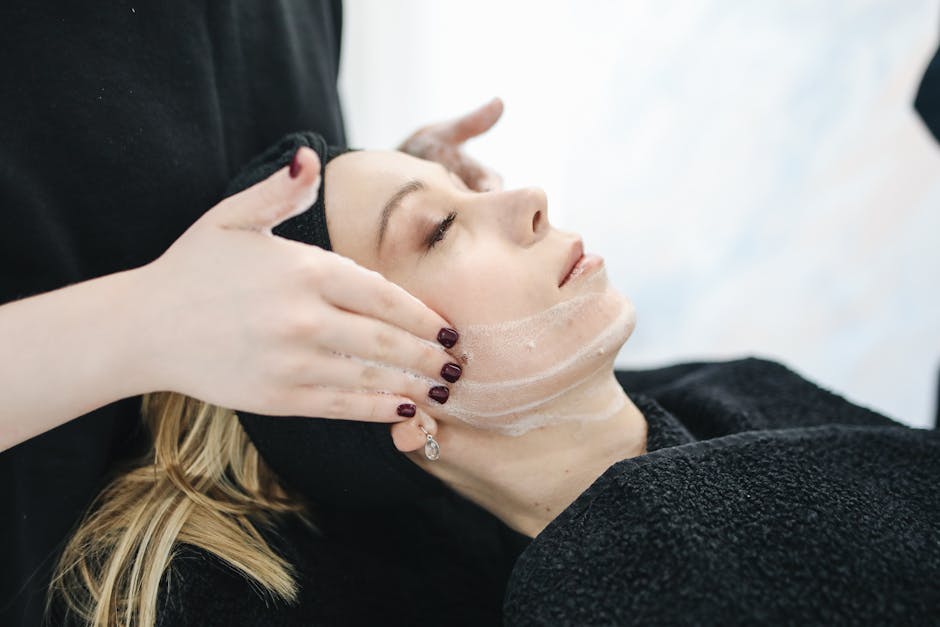
What Is the Best SPF Sunscreen Protection for Daily Use?
If you’ve ever stood in the skincare aisle wondering which SPF number or formula will truly protect your skin, you’re not alone. Many professionals and everyday beauty enthusiasts alike feel overwhelmed by endless sunscreen options. This guide will help you understand what is the best SPF sunscreen protection and how to choose the right one for your lifestyle.
Why SPF Matters for Daily Skin Health
Sun exposure is the number one cause of premature aging, dark spots, and increased skin cancer risk. Even on cloudy days or when you're indoors, harmful UVA rays penetrate glass and still damage skin at a cellular level. This is why wearing sunscreen daily is a non-negotiable step in any skincare routine.
Still skipping sunscreen because you're working inside or it's cloudy outside? It’s time to rethink. Daily SPF isn’t just for beach days — it’s for every day your skin sees light.

What Is the Best SPF Sunscreen Protection?
The best SPF sunscreen protection for daily use is broad-spectrum SPF 30 or higher, offering UVA and UVB coverage, non-comedogenic ingredients, and a lightweight formula suited for your skin type.
- SPF 30 or higher: Blocks around 97% of UVB rays
- Broad-spectrum: Protects against both UVA and UVB rays
- Dermatologist-approved: Backed by science, safe for sensitive skin
- Daily wear comfort: Lightweight, matte or moisturizing finishes
| SPF Level | UVB Protection | Best For |
|---|---|---|
| SPF 15 | 93% | Low exposure (short errands) |
| SPF 30 | 97% | Daily outdoor exposure |
| SPF 50 | 98% | Extended outdoor time or sensitive skin |
Understanding UVA vs. UVB Protection
Not all sun damage is equal. UVA rays age the skin (wrinkles, dark spots), while UVB rays burn it. A sunscreen with the best UVA protection prevents long-term damage that leads to premature aging and even melanoma.

How to Choose the Right Sunscreen for Your Skin
Choosing the right sunscreen is personal. Consider your skin type, daily habits, and any skin concerns (like acne or dryness).
- Oily/Acne-Prone Skin: Look for gel-based, oil-free, and non-comedogenic formulas.
- Dry Skin: Choose cream-based sunscreens with added hydrators like hyaluronic acid.
- Sensitive Skin: Use mineral sunscreens with zinc oxide or titanium dioxide.
- Active Lifestyles: Select water-resistant options that last through sweat or swimming.
Which style suits you best? Read on to see our expert picks based on skin concerns.
Tips for Proper Sunscreen Application
Even the best sunscreen won’t protect you if applied incorrectly. Here’s how to get full coverage every time:
- Apply 15 minutes before sun exposure
- Use a nickel-sized amount for the face and one ounce for the body
- Reapply every 2 hours or after sweating/swimming
- Don’t forget ears, neck, and eyelids

Top Dermatologist-Recommended Daily Sunscreens
Below are the top 3 dermatologist-recommended sunscreens combining UVA protection, daily comfort, and effective skin benefits.
| Product | SPF | Type | Best For |
|---|---|---|---|
| EltaMD UV Clear Broad-Spectrum | 46 | Mineral + Chemical | Acne-prone & sensitive skin |
| La Roche-Posay Anthelios Melt-in Milk | 60 | Broad-Spectrum | Dry or sun-sensitive skin |
| Neutrogena Ultra Sheer Dry-Touch | 55 | Chemical | Oily/combo skin types |
FAQs
What is SPF, and what number should I use daily?
SPF stands for Sun Protection Factor. Dermatologists recommend at least SPF 30 for daily use, as it blocks approximately 97% of UVB rays.
Is higher SPF always better?
Not necessarily. SPF 30–50 is typically sufficient for daily use. SPF 100 provides slightly more protection but can lead to a false sense of security without reapplication.
Do I need sunscreen indoors?
Yes, UVA rays penetrate through windows and cause premature aging. A light layer of SPF is still needed even when you're indoors all day.
What type of sunscreen is safest for sensitive skin?
Mineral-based sunscreens with zinc oxide or titanium dioxide are best for sensitive skin because they sit on the skin’s surface and cause less irritation.
Can I use makeup with SPF instead of sunscreen?
Makeup with SPF can supplement protection but shouldn’t replace a proper sunscreen. Most people don’t apply enough makeup to reach the SPF stated on the label.
Pillar Article: How to Apply Sunscreen Correctly: A Beginner’s Daily Guide
Other Related Articles:
- Your Lips Need Sunscreen Too—Here’s Why It Matters
- Safe Sun Tips You’ll Wish You Knew Sooner
- Is SPF 15 Enough? What Dermatologists Want You to Know
Explore More:



0 Comments